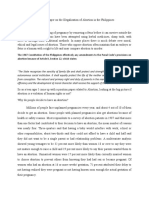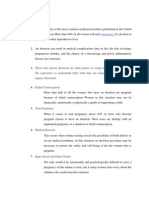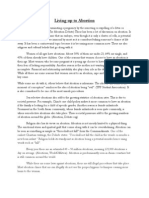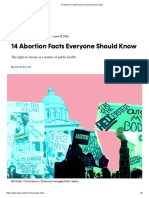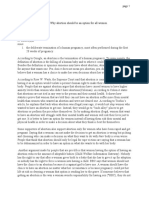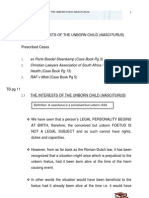0% found this document useful (0 votes)
10 views12 pagesTermination of Pregnancy
Termination of pregnancy refers to a woman's decision to end her pregnancy through medical means, with specific regulations based on the gestational age. Various reasons for seeking an abortion include financial instability, lack of readiness, partner-related issues, and health concerns. The impact of abortion can be psychological, emotional, and relational, affecting both women and men, and it is important for parents to educate their children about abortion in an age-appropriate manner.
Uploaded by
tutu.mbokaneCopyright
© © All Rights Reserved
We take content rights seriously. If you suspect this is your content, claim it here.
Available Formats
Download as DOCX, PDF, TXT or read online on Scribd
0% found this document useful (0 votes)
10 views12 pagesTermination of Pregnancy
Termination of pregnancy refers to a woman's decision to end her pregnancy through medical means, with specific regulations based on the gestational age. Various reasons for seeking an abortion include financial instability, lack of readiness, partner-related issues, and health concerns. The impact of abortion can be psychological, emotional, and relational, affecting both women and men, and it is important for parents to educate their children about abortion in an age-appropriate manner.
Uploaded by
tutu.mbokaneCopyright
© © All Rights Reserved
We take content rights seriously. If you suspect this is your content, claim it here.
Available Formats
Download as DOCX, PDF, TXT or read online on Scribd
/ 12







